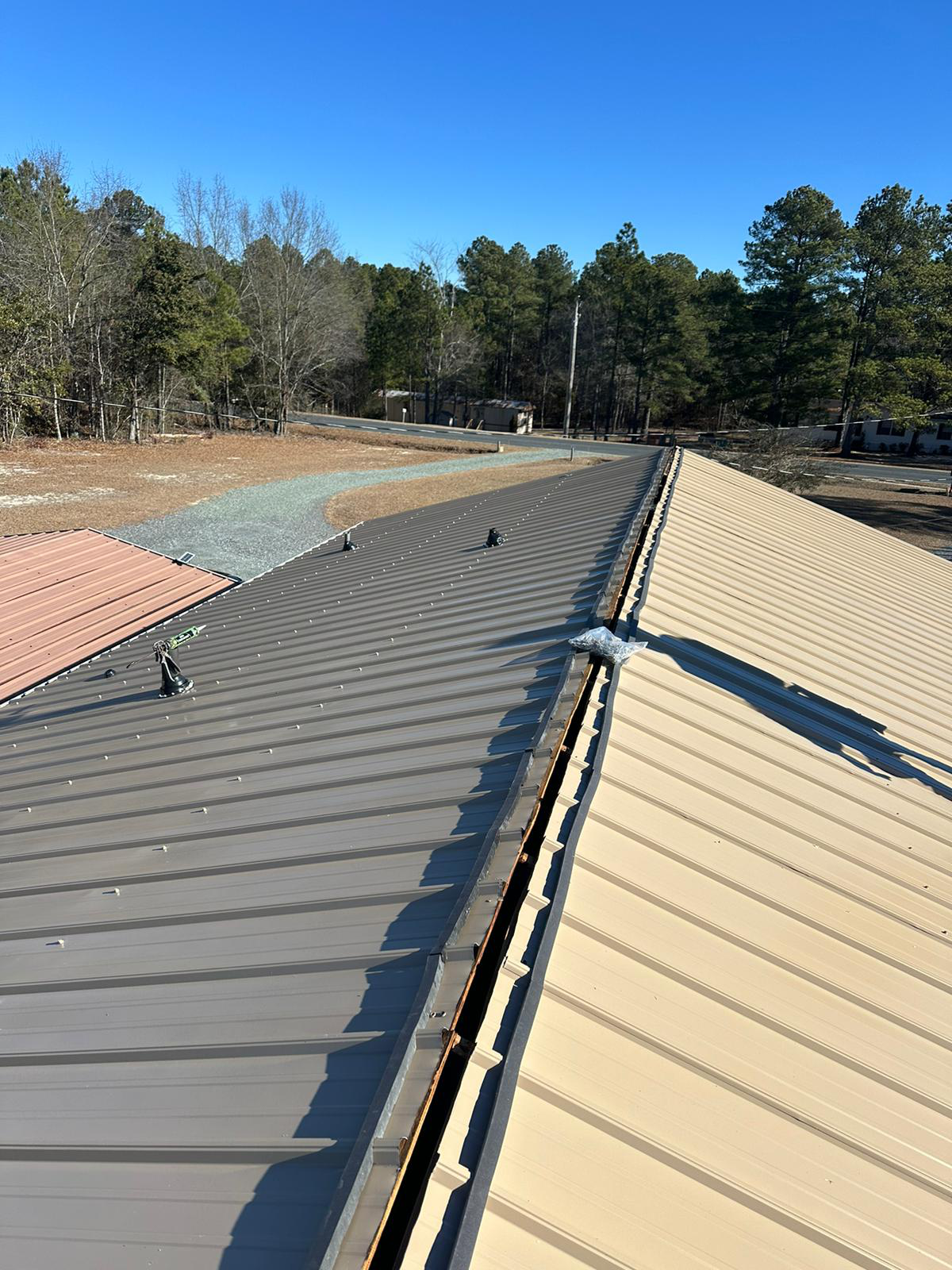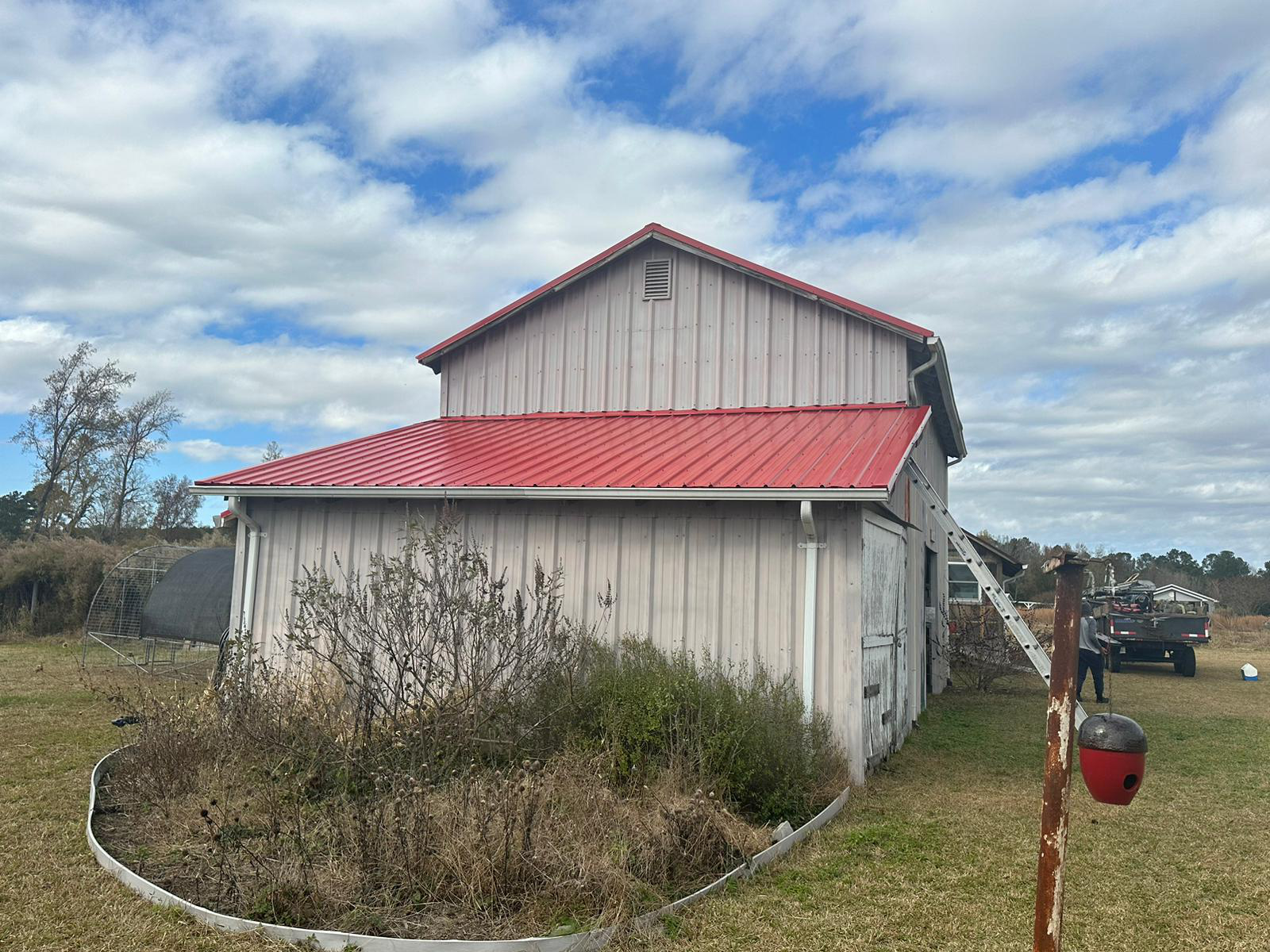Hey there, homeowners of Tennessee! Are you considering upgrading your roof but feeling hesitant about the idea of metal roofing? Well, you’re not alone. As metal roofing experts, we’ve encountered numerous misconceptions surrounding metal roofing that often deter homeowners from making informed decisions. Let’s debunk these myths together and shed light on the truth about metal roofing. If you have any questions or need guidance, feel free to reach out to James Kenton, a highly experienced metal roofing contractor in Tennessee.
Misconception #1: Metal Roofs Are Noisy
It’s understandable why some homeowners might be hesitant to choose metal roofing due to concerns about noise levels. After all, the image of rain pinging loudly against a metal surface can be off-putting. However, the reality is far from the perception.
Modern metal roofing materials are engineered with noise reduction in mind. Manufacturers have developed innovative techniques and technologies to minimize sound transmission and create a quieter indoor environment. These advancements include the use of dense insulation materials, sound-dampening underlayment, and strategic panel designs that absorb and deflect sound waves.
With proper insulation and installation techniques, metal roofs can actually be quieter than traditional asphalt shingle roofs. By reducing the transmission of exterior sounds into the home, homeowners can enjoy a more peaceful and comfortable living environment, even during rain or hailstorms.
Moreover, the sound of rain on a metal roof is often perceived as soothing rather than disruptive. Many people find the gentle patter of raindrops on metal to be calming and relaxing, akin to the sound of a gentle summer shower. Rather than being a source of annoyance, the sound of rain on a metal roof can enhance the ambiance of your home, creating a cozy atmosphere during inclement weather.
James Kenton understands the importance of addressing homeowners’ concerns about noise when considering metal roofing. That’s why he offers a range of metal roofing solutions tailored to your specific needs and preferences. Whether you prioritize noise reduction, durability, energy efficiency, or aesthetic appeal, he can recommend the right metal roofing system to meet your requirements.
Ready to experience the benefits of metal roofing for yourself? Contact James Kenton in Tennessee today to schedule a consultation and discover the perfect roofing solution for your home.
By debunking the misconception that metal roofs are noisy, we hope to empower homeowners to make informed decisions about their roofing options. With the guidance and expertise of James Kenton, you can enjoy the many benefits of metal roofing without sacrificing comfort or tranquility.
Misconception #2: Metal Roofs Attract Lightning
Metal is a conductor of electricity, so it’s understandable why some people might believe that metal roofing would attract lightning. However, it’s essential to understand that the material of your roof does not influence where lightning strikes. Lightning is a natural phenomenon that occurs when electrically charged particles in the atmosphere build up and discharge.
In reality, lightning is attracted to the highest point in its vicinity, regardless of the material composition. Tall trees, buildings, and other structures are more likely to be struck by lightning because they protrude above their surroundings, providing a path of least resistance to electrical discharge.
When it comes to metal roofing, there’s a misconception that it poses a greater risk of fire damage in the event of a lightning strike. However, the truth is quite the opposite. Metal roofing is non-combustible, meaning it does not catch fire or support combustion. In fact, metal roofs can help dissipate the energy from a lightning strike, reducing the risk of fire damage to your home.
How does this work? When lightning strikes a metal roof, the electrical current is conducted through the metal panels and safely dispersed into the ground through the building’s grounding system. This process helps protect the structure by preventing the buildup of heat that could ignite flammable materials in the attic or interior spaces.
Additionally, modern building codes and safety standards require the installation of lightning protection systems on tall structures, including metal-roofed buildings. These systems include lightning rods, conductors, and grounding electrodes designed to safely channel the electrical energy from lightning strikes away from the structure and into the ground.
Ready to debunk more metal roofing myths and explore your options? Contact James Kenton today for expert advice and personalized solutions tailored to your home.
Misconception #3: Metal Roofs Are Prone to Rust and Corrosion

Many homeowners hesitate to choose metal roofing because they believe it’s prone to rust and corrosion, especially in regions with high humidity or coastal climates like Tennessee.
Fact: While older metal roofing systems may have been susceptible to rust and corrosion, modern metal roofing materials are highly resistant to these issues. With technological advancements and protective coatings, today’s metal roofs can withstand the harshest environmental conditions, including heavy rainfall and salty air. James Kenton offers a variety of durable metal roofing options that are designed to last for decades without rust or corrosion.
Misconception #4: Metal Roofs Are Expensive
One of the biggest misconceptions about metal roofing is that it’s prohibitively expensive, making it an unrealistic option for budget-conscious homeowners.
Fact: While the upfront cost of metal roofing may be higher than traditional asphalt shingles, it’s essential to consider the long-term savings and benefits. Metal roofs are incredibly durable and require minimal maintenance compared to other roofing materials. They can also help reduce energy costs by reflecting heat away from your home, lowering utility bills over time.
As we’ve debunked these common misconceptions about metal roofing, we hope you now have a clearer understanding of this versatile and reliable roofing option. Remember, James Kenton in Tennessee is here to provide expert guidance and superior roofing solutions tailored to your needs. Whether you’re ready to switch to metal roofing or want to learn more, don’t hesitate to reach out to him. Your dream roof is just a phone call away!
